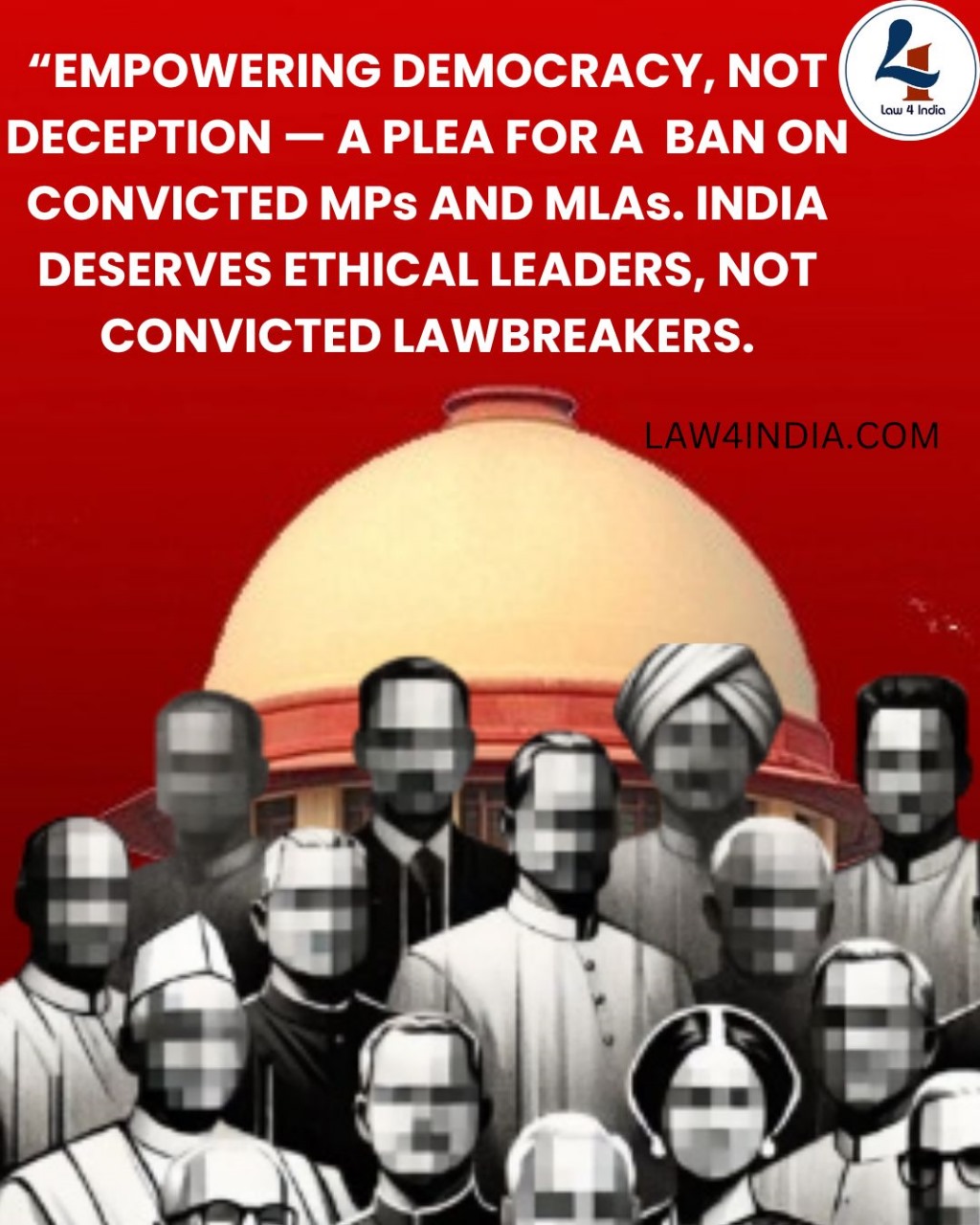- By Samvidha
The wheels of justice turn slowly, they say, but for some, such as our politicians, it seems to turn to a virtual stop. The Supreme Court has sent the question of expeditious disposal of criminal cases against MPs and MLAs to the Chief Justice of India (CJI) for referral to a larger bench. Increasingly in the news is the sheer number of politicians with criminal cases against them, and the glacial speed at which their cases proceed in court. The Court was hearing a 2016 PIL by Advocate Ashwini Kumar Upadhyay for uniform disqualification of convicted individuals from the legislature, executive, and judiciary, and a call for a one-year time frame for deciding criminal cases against members of the government. After all, why should law-makers be allowed to sit in legal limbo for years, even decades?
This very issue has come before the Supreme Court. Picture a legislator with serious charges made against him, yet still voting on laws that impact us all. It’s a disturbing image.
The Supreme Court, acknowledging the gravity of the situation, has now taken a significant step. The Bench of Justice Dipankar Datta and Justice Manmohan directed that the issue be placed before the Chief Justice of India for consideration by a larger bench. They’ve asked the Chief Justice of India to assemble this larger panel of judges, essentially saying, “This is a big one, we need more minds on it.”
Moreover, the Supreme Court is considering a plea challenging Sections 8 and 9 of the Representation of the People Act, 1951, which currently allow convicted lawmakers to contest elections after a six-year ban post-sentence.
The Supreme Court is also deliberating on whether convicted lawmakers should face a lifetime disqualification from contesting elections ?
Presently, convicted MPs and MLAs can contest elections again after a six-year ban following their sentence. The petitioners argue that this period is insufficient, and there should be an immediate disqualification, particularly for those facing serious allegations under UAPA , PMLA etc even while appealing their convictions.
This isn’t the first time the Supreme Court has faced this issue. Earlier it was advised to set up special courts for such cases, but it was not that fruitful.
Currently, the situation is chaotic: many MPs and MLAs are dealing with charges ranging from corruption to serious violent crimes, and their cases are stuck in a maze of legal details, political strategies, and procedural delays.
These legal battles are happening amid growing worry about the rise of crime in politics. Reports show that a significant number of sitting MPs and MLAs have pending criminal cases, with some involving serious crimes.
Currently, a politician who has been convicted can’t run for office for six years after serving their sentence. But what happens during their appeal? The petition calls for a tougher and quicker disqualification, stopping individuals with questionable backgrounds from holding office while they fight their legal issues.
Now, the Supreme Court has asked the government and the Election Commission for their input and directed them ECI and Union to file their counter affidavit within 3 weeks. The Bench would like understand the existing rules are and know if they are adequate enough?
The upcoming discussions of the larger bench and their views on the lifetime ban idea are extremely significant. The Court’s decisions will greatly affect the future of politics in India. The nation is watching closely to see how these proceedings unfold, as they could change the political scene and reinforce the principles of Indian democracy.
Case Title: Case No. W.P.(C) NO. 699/2016 – ASHWINI KUMAR UPADHYAY Vs. UNION OF INDIA AND ANR.

